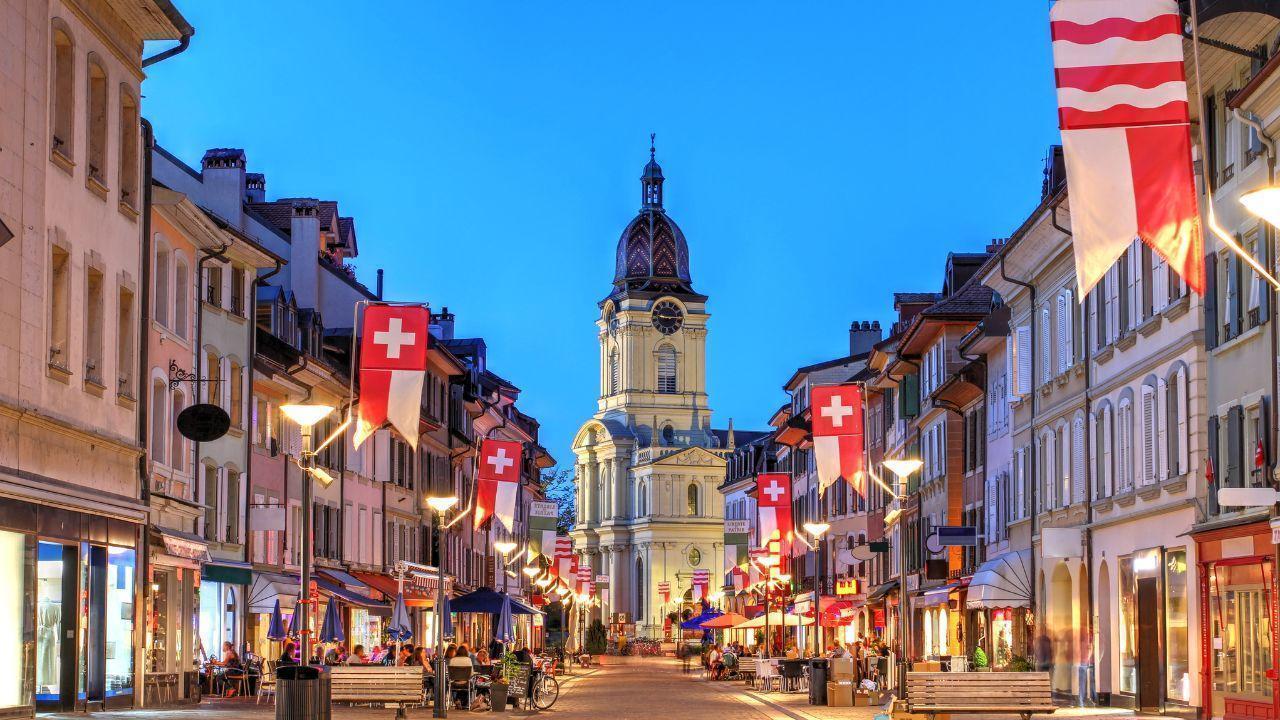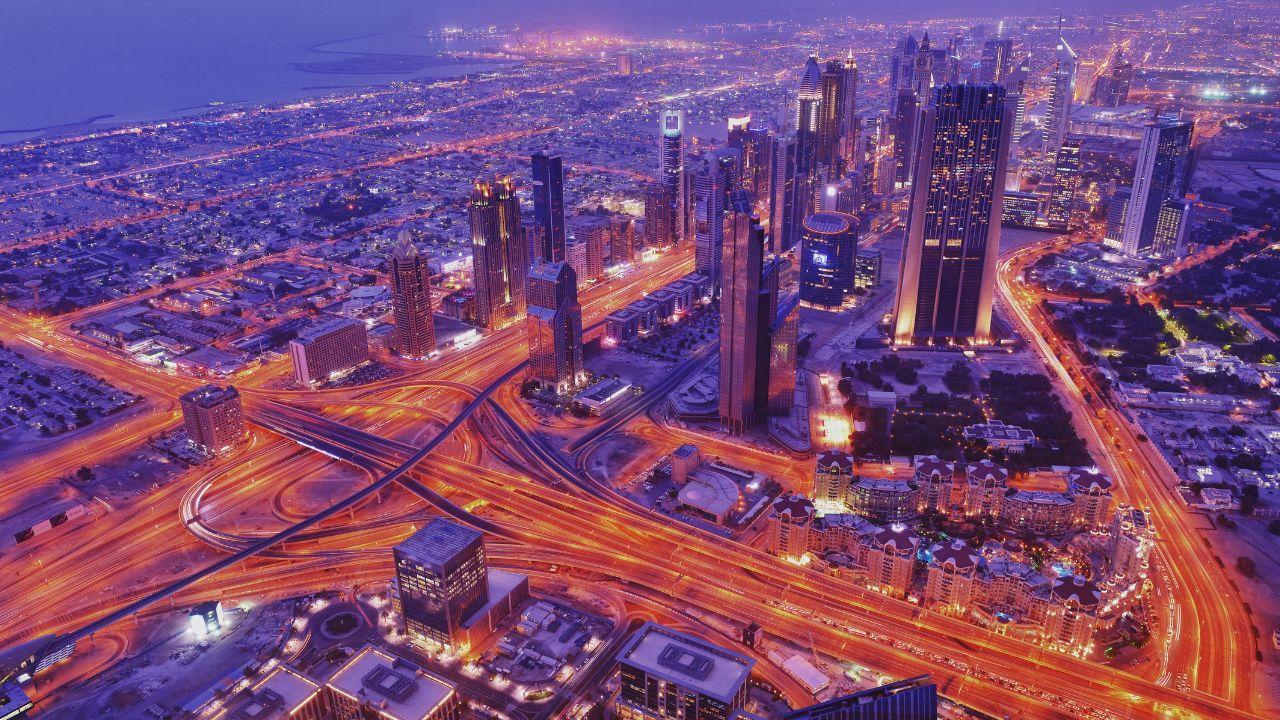
Nestled in the heart of Europe lies Switzerland, a country that captures the imagination with its breathtaking landscapes and vibrant cities. Many people dream of living and working here because of its high quality of life and diverse opportunities. Whether you're enchanted by the majestic Alps, the bustling city life of Zurich, or the peaceful lakeside towns, Switzerland has something special to offer everyone.
Switzerland's natural beauty is unparalleled. The snow-capped mountains, pristine lakes, and lush green valleys create a stunning backdrop for daily life. Families enjoy skiing in the winter and hiking in the summer, making the most of Switzerland's outdoor paradise.
In cities like Zurich, Geneva, and Basel, modernity meets tradition. Zurich, for example, is known for its financial prowess and cultural attractions, while Geneva is famous for its international organizations and diplomatic influence. Basel, with its art museums and historic architecture, offers a blend of creativity and history.
Switzerland's quality of life is among the highest in the world. Excellent healthcare, education, and public services ensure that residents are well taken care of. Safety and cleanliness are paramount, making it a safe haven for families and individuals alike.
Job opportunities abound in Switzerland's diverse economy. From finance to pharmaceuticals, technology to hospitality, there's something for every career path. Global companies like Nestlé and Novartis call Switzerland home, attracting skilled professionals from across the globe.
Living costs can be high, especially in major cities like Zurich and Geneva. However, salaries generally reflect this, and smaller towns offer more affordable options. It's all about finding the right balance between living expenses and quality of life.
Switzerland's cultural diversity adds to its allure. With four official languages – German, French, Italian, and Romansh – the country celebrates its multicultural identity. Expatriates find it easy to integrate, with English widely spoken in business and international settings.
Legal requirements for working in Switzerland vary based on citizenship. Non-EU citizens need a work permit, which requires a job offer and compliance with Swiss regulations. EU/EFTA citizens benefit from easier access under bilateral agreements.
Switzerland is home to some amazing cities that are great to explore. Each city has its own unique charm and things to see and do. Let's take a closer look at some of the most popular Swiss cities:
Zurich is Switzerland's largest city and a bustling hub of activity. It's known for its financial prowess and vibrant cultural scene. The city sits on the shores of Lake Zurich, offering stunning views and plenty of outdoor spaces to enjoy. You can visit museums, shop at luxury boutiques, or simply stroll along the picturesque streets.
Geneva, often called the "Capital of Peace," is famous for being a global center of diplomacy. It hosts the headquarters of numerous international organizations, including the United Nations and the Red Cross. The Jet d'Eau, a large fountain in Lake Geneva, is a symbol of the city and a must-see attraction. Geneva is also rich in history and culture, with museums, parks, and beautiful lakeside promenades.
Basel, located on the Rhine River near the borders of France and Germany, is known for its thriving art scene and medieval old town. The city is home to many world-class museums and galleries, including the renowned Kunstmuseum Basel. Basel also hosts Art Basel, one of the world's leading contemporary art fairs. Visitors can explore historic landmarks, such as the Basel Minster, and enjoy scenic river cruises.
Lucerne is a charming city nestled amid snow-capped mountains and serene lakes. It's famous for its well-preserved medieval architecture, including the Chapel Bridge (Kapellbrücke) adorned with beautiful paintings. Lucerne offers breathtaking views of Mount Pilatus and Mount Rigi, making it a paradise for nature lovers and outdoor enthusiasts. Boat cruises on Lake Lucerne and a ride on the cogwheel railway up Mount Pilatus are popular activities.
Bern, the capital of Switzerland, boasts a picturesque old town recognized as a UNESCO World Heritage site. The city is known for its medieval architecture, cobblestone streets, and arcaded walkways. The iconic Zytglogge clock tower and the Federal Palace (Bundeshaus) are must-visit landmarks. Bern's Bear Park is home to the city's beloved symbol, the Bernese bear.
Swiss cities offer a blend of history, culture, and natural beauty that appeal to visitors of all ages. Whether you're exploring Zurich's modernity, Geneva's international flair, Basel's art scene, Lucerne's scenic splendor, or Bern's medieval charm, each city promises a memorable experience and a glimpse into Switzerland's rich heritage.
Quality of life in a country like Switzerland means living in a place where everything works well. It's not just about having nice things, but also about feeling safe and happy every day. Switzerland is famous for its high quality of life because it offers many good things to people who live there.
One important part of quality of life is healthcare. In Switzerland, everyone can get good medical care when they need it. Hospitals and doctors are well-trained and there are many clinics and healthcare centers all over the country. This means people can stay healthy and get help quickly if they are sick or hurt.
Education is another big part of quality of life in Switzerland. Children go to good schools where they can learn a lot and have fun. Teachers are well-trained and classrooms are usually small, so kids get lots of attention. There are also many opportunities for kids to learn different languages because Switzerland has four official languages: German, French, Italian, and Romansh.
Switzerland is known for being a safe place to live. Crime rates are low, and people feel secure walking around even at night. This makes it a great place for families to live and for kids to grow up without worrying about dangerous situations.
When it comes to work, Switzerland offers good job opportunities. Many big companies have offices here, which means people can find jobs in different fields like banking, technology, and healthcare. The salaries are usually good, which helps people afford their homes and enjoy life.
Nature is another big reason why Switzerland has a high quality of life. The country is famous for its beautiful mountains, lakes, and forests. People can enjoy outdoor activities like skiing, hiking, and swimming in clean lakes. This connection to nature helps people relax and stay healthy.
Switzerland also has a good transportation system. Trains, buses, and trams are punctual and clean, making it easy for people to get around without a car. This reduces pollution and traffic jams, which adds to the overall quality of life.
Overall, Switzerland offers a high quality of life because it cares about the well-being of its people. From good healthcare and education to safety, job opportunities, and beautiful nature, Switzerland provides everything needed for a happy and fulfilling life.
Switzerland, known for its beautiful landscapes and high standard of living, also offers abundant job opportunities across various industries. Whether you're interested in finance, technology, hospitality, or healthcare, Switzerland has something to offer for everyone looking to build their career.
In cities like Zurich, Geneva, and Basel, multinational companies have established their headquarters, creating a dynamic job market. Major industries include banking and finance, pharmaceuticals, luxury goods, and international organizations. Companies such as UBS, Credit Suisse, Novartis, and Rolex provide employment opportunities for skilled professionals from around the globe.
The Swiss economy is known for its stability and innovation, making it an attractive destination for professionals seeking career advancement. Many jobs require specialized skills and qualifications, particularly in fields like engineering, IT, and research. Language skills are also valuable, with English widely spoken in business settings alongside German, French, and Italian, the country's official languages.
For those interested in hospitality, Switzerland's tourism industry thrives year-round. From luxury hotels in ski resorts to fine dining restaurants in cosmopolitan cities, there are opportunities for chefs, hotel managers, and hospitality professionals to excel.
The Swiss education system is renowned for its emphasis on vocational training and apprenticeships, offering young people pathways into skilled professions early in their careers. This approach ensures a steady supply of skilled workers across various sectors, contributing to Switzerland's economic success.
Job seekers in Switzerland benefit from competitive salaries, excellent working conditions, and a commitment to work-life balance. The country's efficient public transport system and high-quality infrastructure make commuting convenient, enhancing overall job satisfaction.
Whether you're considering a career move or exploring internship opportunities, Switzerland's diverse job market promises rewarding experiences and professional growth. With its stable economy, cultural diversity, and emphasis on innovation, Switzerland continues to attract ambitious individuals eager to contribute to its thriving workforce.
The cost of living refers to how much money people need to cover their basic needs like housing, food, and other expenses in a particular place. In Switzerland, the cost of living is generally high compared to many other countries. This is because Switzerland is known for its high-quality services and products, which can be more expensive.
One of the biggest expenses in Switzerland is housing. Renting an apartment or buying a house can take up a significant portion of a person's income. The price of housing can vary depending on the location, with cities like Zurich and Geneva being more expensive than rural areas.
Food is another factor that contributes to the cost of living. While Swiss cuisine is diverse and delicious, groceries can be pricey. Imported goods and high-quality local produce can drive up grocery bills.
Healthcare is another essential expense. Switzerland has a top-notch healthcare system, but it comes at a cost. Residents are required to have health insurance, which can be expensive, although it ensures access to high-quality medical care.
Transportation costs also add up. Swiss cities have excellent public transportation networks, but tickets and passes can be costly. Many people also own cars, which means paying for fuel, maintenance, and insurance.
Education is another consideration for families. While public schools are generally free, private and international schools can be expensive. Families moving to Switzerland often factor in these costs when budgeting.
Overall, while the cost of living in Switzerland is high, it reflects the country's high standard of living and quality of life. People living in Switzerland enjoy excellent services, safety, and infrastructure, but it's important to budget carefully and consider the expenses when planning to live in this beautiful country.
Cultural diversity in Switzerland is like a colorful patchwork quilt woven from different threads. Imagine a country where people speak not just one or two languages, but four! In Switzerland, you'll hear German, French, Italian, and Romansh spoken across different regions. Each language brings with it unique traditions, foods, and customs.
In cities like Zurich, bustling with business and finance, you might hear Swiss German spoken in the streets and offices. Travel to Geneva, and you'll find French as the primary language, reflecting its diplomatic and international flair. In the southern Ticino region, Italian fills the air, blending Swiss precision with Mediterranean warmth. And in the mountainous Graubünden, Romansh, one of Europe's lesser-known languages, holds onto its ancient roots.
Switzerland isn't just about languages; it's also about the cultures they represent. Swiss festivals and celebrations are a colorful kaleidoscope of traditions. From the lively Fasnacht carnival in Basel to the elegant Montreux Jazz Festival on Lake Geneva, there's always something to celebrate and enjoy.
Food plays a big role in Swiss cultural diversity too. Each region has its culinary specialties. In the German-speaking part, hearty dishes like rosti (potato pancakes) and fondue (melted cheese goodness) warm hearts and bellies. French-speaking Switzerland offers culinary delights like raclette (melted cheese scraped onto bread or potatoes) and chocolate that's almost too good to eat. Italian influences bring pizza, pasta, and gelato, adding a taste of the Mediterranean to Swiss cuisine.
Living in Switzerland means embracing this rich tapestry of cultures. It's about learning from each other, celebrating differences, and finding unity in diversity. Swiss people take pride in their multicultural heritage, and visitors are warmly welcomed to experience the best of what each language and culture has to offer.
So, whether you're exploring the cobblestone streets of Bern, skiing down the slopes of St. Moritz, or enjoying a Swiss chocolate treat in Lucerne, Switzerland's cultural diversity is sure to leave a lasting impression on you. It's a country where every corner tells a story, and every language spoken is a testament to its vibrant and inclusive spirit.
When you decide to live and work in Switzerland, there are important legal requirements you must follow to ensure everything goes smoothly. These rules are in place to protect both residents and the country as a whole.
Firstly, if you're a citizen of the European Union (EU) or European Free Trade Association (EFTA) member states, you have the advantage of easier access to Switzerland's job market. You can usually enter Switzerland without a visa and stay for up to three months while looking for work. Once you find a job, you'll need to register with the local authorities and apply for a residence permit.
For non-EU/EFTA citizens, the process is more complex. You must secure a job offer from a Swiss employer before entering the country. Your employer will need to demonstrate that no Swiss or EU/EFTA citizen is qualified for the position, which can be a lengthy process. Once you have a job offer, you'll apply for a work permit, which will specify the duration and conditions of your stay.
All residents in Switzerland must comply with local laws and regulations. This includes registering your residence with the local authorities within 14 days of arrival, obtaining health insurance, and paying taxes. Switzerland has a strong legal system that ensures fairness and protection for residents and workers alike.
Understanding these legal requirements is essential for a smooth transition to living and working in Switzerland. By following the rules and respecting Swiss laws, you can enjoy all that this beautiful country has to offer while contributing positively to its society and economy.
Explore the wonders of living and working in Switzerland through this comprehensive guide. Discover the country's breathtaking landscapes, vibrant cities like Zurich and Geneva, and high quality of life supported by excellent healthcare and education. Switzerland offers diverse job opportunities in sectors such as finance, technology, and hospitality, with companies like Nestlé and Novartis calling it home. While living costs can be high, especially in major cities, the cultural diversity and safety of Switzerland make it an attractive destination for families and individuals alike.
DXB News Network strives to provide accurate and informative content. The information in this article on living and working in Switzerland is based on research and reliable sources. Readers are encouraged to verify details with official sources or seek professional advice regarding specific legal or immigration matters. Enjoy exploring Switzerland through our content while planning your journey responsibly.
Citizens of EU/EFTA countries can generally enter Switzerland without a visa and stay for up to three months while seeking employment. Non-EU/EFTA citizens need a job offer from a Swiss employer and must apply for a work permit.
Upon arrival, all residents must register with the local authorities within 14 days. This process involves providing necessary documents and completing paperwork to obtain a residence permit.
Switzerland offers a high-quality healthcare system, and all residents are required to have health insurance. There are various private insurance providers offering comprehensive coverage.
Language requirements vary depending on the region and job sector. While English is widely spoken in international business settings, knowledge of German, French, Italian, or Romansh may be beneficial for daily life.
Residents in Switzerland are subject to Swiss taxation laws, which include income tax and other levies. Tax rates and regulations can vary between cantons (regions).
#trending #latest #LivingInSwitzerland #WorkingInSwitzerland #SwissLife #SwissCulture #ExpatsInSwitzerland #SwissJobs #SwitzerlandTravel #SwissAlps #GenevaLife #ZurichLiving #breakingnews #worldnews #headlines #topstories #globalUpdate #dxbnewsnetwork #dxbnews #dxbdnn #dxbnewsnetworkdnn #bestnewschanneldubai #bestnewschannelUAE #bestnewschannelabudhabi #bestnewschannelajman #bestnewschannelofdubai #popularnewschanneldubai

During the visit, His Highness toured the exhibition, visiting various local and international pavilions...Read More.

In the first ten months of 2024, Dubai Real Estate Corporation (DREC) and its subsidiary, Wasl Group, saw a 28% rise in revenues compared to 2023...Read More.
 Salah inspires Liverpool comeback to extend lead to eight points at Southampton
Salah inspires Liverpool comeback to extend lead to eight points at Southampton
Liverpool came from 2-1 down as Salah scored twice in the second half, reaching 10 goals
 Nine-Year-Old’s Model of Hajar Mountains Earns Recognition from Dubai Culture & Arts Authority.
Nine-Year-Old’s Model of Hajar Mountains Earns Recognition from Dubai Culture & Arts Authority.
educational journey by nine-year-old Henry Zielinski, a Grade 3 student at Clarion School, underscor
 Muhammad Hamza Raja: A Bodybuilder Who Inspires the World
Muhammad Hamza Raja: A Bodybuilder Who Inspires the World
Muhammad Hamza Raja’s story is a perfect example of someone who has embraced this spirit.
 Yeh Kaali Kaali Ankhein 2 Review: Tahir Raj Bhasin Shines
Yeh Kaali Kaali Ankhein 2 Review: Tahir Raj Bhasin Shines
Yeh Kaali Kaali Ankhein 2 continues the thrilling story with fresh twists and new challenges.
 Manoj Bajpayee Discusses Indie Cinema Crisis & Why Bollywood Acting Is the Toughest Job
Manoj Bajpayee Discusses Indie Cinema Crisis & Why Bollywood Acting Is the Toughest Job
The acclaimed actor candidly spoke about his career, fame, and experiences in films.
Khaled bin Mohamed bin Zayed visits 6th Abu Dhabi International Boat Show

During the visit, His Highness toured the exhibition, visiting various local and international pavilions
Dubai Real Estate Corporation Reports 28% Revenue Growth

In the first ten months of 2024, Dubai Real Estate Corporation (DREC) and its subsidiary, Wasl Group, saw a 28% rise in revenues compared to 2023
4th Al Sila Marine Festival to Be Held in Al Dhafra Under Hamdan bin Zayed

The Abu Dhabi Heritage Authority and the Abu Dhabi Marine Sports Club are organising the event
The Rise of Sustainable Clothing: How Eco-Friendly Fashion is Trending

Discover the growing trend of sustainable fashion for a better future
Egypt and Saudi Arabia wrap up ‘Piercing Arrow 2024’ joint exercise

The training took place in Egypt's Southern Military Zone and the Southern Fleet's operational area, with observers from allied and friendly nations
Top TikTok Beauty Products for a Glowing Look

Discover top TikTok beauty products for a glowing, radiant look
2nd Abu Dhabi Maritime Awards Honors Top Marinas in MENA and Türkiye

The Pearl Island Marina in Qatar won silver, while bronze was awarded to Abu Dhabi Marine in the UAE
Abu Dhabi Kingfish Championships to Feature AED 4.3M+ Prize Pool

The event aims to preserve maritime traditions and promote sustainable, regulated traditional fishing, reflecting values of authenticity
How Technology is Changing The Future of Work and Education

Discover how technology is transforming work and education for all
Nita Ambani stuns at IPL auction in tweed pantsuit and diamond brooch

Nita Ambani wowed the crowd at the IPL Auction 2025 in a stunning navy blue tweed suit. The price? Absolutely jaw-dropping
© DNN. All Rights Reserved.